
- Shandong Loyal Industrial Co.,Ltd.
- Industrial Microwave Oven Food Extruder Machine Biscuit Making Machine
Home> Company News> The UltimateJapanese Panko Bread Crumb Machine Guide to 2024

The UltimateJapanese Panko Bread Crumb Machine Guide to 2024
2024-06-24 17:40:49Introduction to Japanese Panko Bread Crumb Machines
Japanese Japanese Panko Bread Crumb Machines are a vital component in the food processing industry, known for their efficiency in producing light, crispy bread crumbs that enhance a variety of culinary dishes. These machines are designed to replicate traditional methods with modern precision, ensuring consistency and high quality in every batch.
The evolution of Japanese Panko Bread Crumb Machines has been driven by advancements in technology and a growing demand for Panko crumbs in both commercial and home kitchens. These machines automate the entire process, from dough preparation to baking and shredding, resulting in uniform crumbs with the perfect texture.
As the popularity of Panko crumbs continues to rise globally, the market for Japanese Panko Bread Crumb Machines is expected to expand further in 2024. These machines are not only efficient but also cater to the increasing need for high-quality, standardized bread crumbs in large-scale food production.
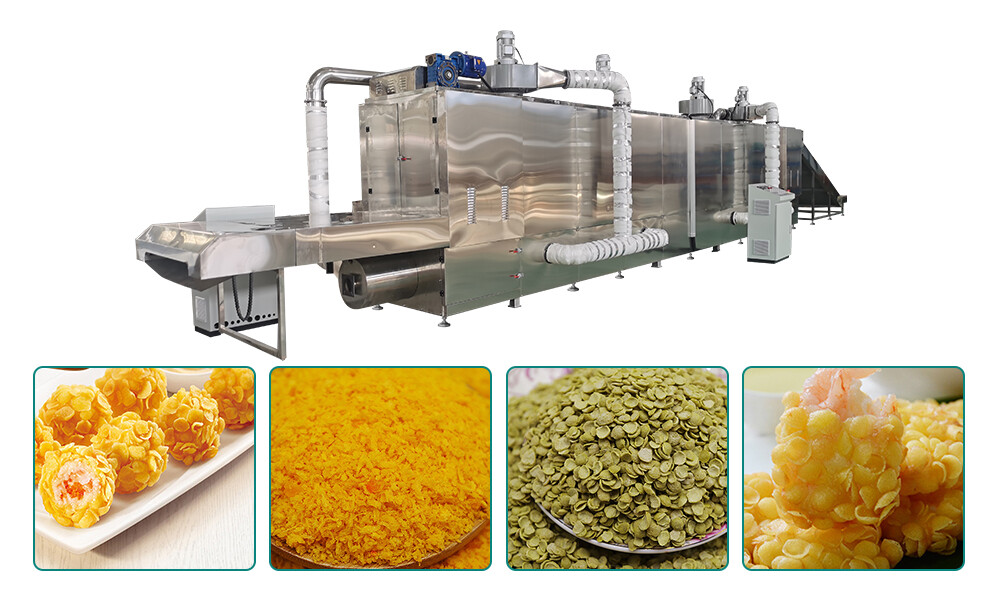
Key Features of Panko Bread Crumb Machines
|
Feature |
Description |
|
Automated Dough Mixing |
Ensures consistent dough preparation, reducing manual labor and improving overall efficiency. |
|
Precision Baking |
Utilizes advanced temperature control to achieve the ideal baking conditions for perfect Panko bread crumbs. |
|
High-Speed Shredding |
Equipped with high-speed shredding mechanisms to produce uniformly sized bread crumbs swiftly and efficiently. |
|
Durable Construction |
Made from robust, food-grade stainless steel, ensuring long-lasting performance and compliance with food safety standards. |
|
Adjustable Settings |
Allows customization of crumb size and texture, catering to various culinary applications and preferences. |
|
Energy Efficiency |
Designed to minimize energy consumption while maintaining optimal operational performance. |
|
Easy Maintenance |
Features user-friendly cleaning and maintenance protocols, reducing downtime and enhancing productivity. |
|
Safety Mechanisms |
Integrated safety features such as emergency stop buttons and protective guards to ensure operator safety. |
|
User-Friendly Interface |
Touchscreen controls and programmable settings for ease of use and flexibility in production processes. |
|
Compact Design |
Space-saving design suitable for both small and large-scale production environments. |
Japanese Panko Bread Crumb Machine has revolutionized the food industry by providing an efficient and consistent method to produce high-quality panko bread crumbs. In this guide, we will explore the benefits of using Japanese panko machines and highlight the top manufacturers of panko machines in 2024.

Benefits of Using Japanese Panko Machines
Enhanced Quality and Consistency: Japanese panko machines are renowned for producing bread crumbs with a light, airy texture that is perfect for various culinary applications. The Japanese Panko Bread Crumb Machine ensures uniformity in size and texture, which is crucial for maintaining product quality.
Increased Production Efficiency: Modern panko machines are designed to handle large volumes of bread with minimal manual intervention. This results in a significant reduction in labor costs and time, allowing manufacturers to meet high demand efficiently. The automation provided by a Japanese Panko Bread Crumb Machine is essential for scaling production while maintaining quality.
Versatility in Applications: Panko bread crumbs produced by these machines are used in a wide range of products, from coatings for fried foods to toppings for casseroles. The adaptability of the Japanese Panko Bread Crumb Machine allows manufacturers to diversify their product offerings without needing multiple types of equipment.
Sustainability and Waste Reduction: Japanese panko machines are designed to maximize the use of bread and minimize waste. By optimizing the crumb production process, the Japanese Panko Bread Crumb Machine contributes to more sustainable manufacturing practices, aligning with modern environmental standards.
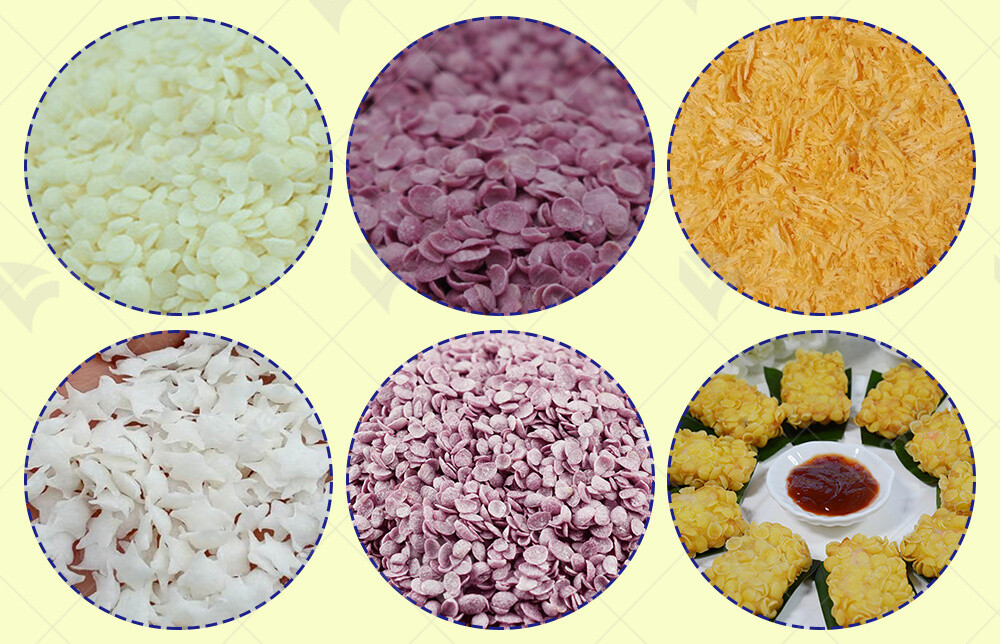
How Panko Bread Crumb Machines Work
Japanese Panko Bread Crumb Machines are essential in modern food processing, particularly for businesses focusing on breaded products. These machines operate through a series of well-coordinated steps to produce the distinct, airy texture of panko bread crumbs.
First, the bread is baked to a specific moisture level. This is crucial as the right moisture content ensures the bread can be shredded properly without becoming too dry or too moist. The Japanese Panko Bread Crumb Machine then slices the bread into uniform pieces.
Next, the bread pieces are fed into the shredding mechanism. This part of the Japanese Panko Bread Crumb Machine utilizes specialized blades to create the unique slivers that characterize panko crumbs. The shredding process is carefully controlled to maintain consistency in crumb size and shape.
After shredding, the crumbs are dried in a controlled environment within the machine. The drying process is essential to achieve the light and airy texture of panko. The Japanese Panko Bread Crumb Machine ensures that the drying temperature and duration are optimized to prevent over-drying or under-drying the crumbs.
Finally, the dried crumbs are sifted to remove any large or irregular pieces. The machine may include a series of sieves to ensure only the finest crumbs are collected. The end product is then ready for packaging or direct use in food processing lines.
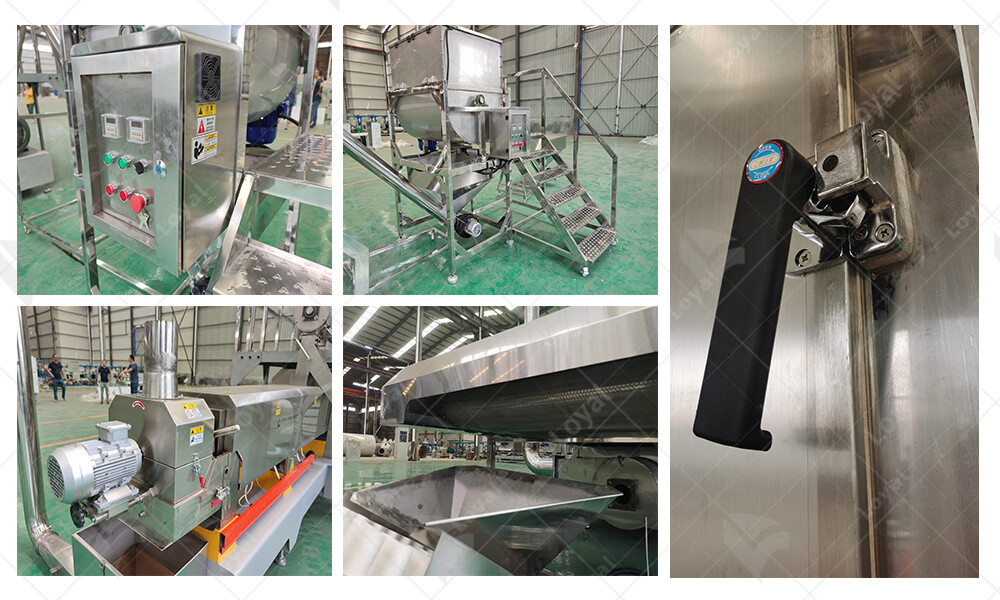
Choosing the Right Panko Machine for Your Business
Selecting the right Japanese Panko Bread Crumb Machine for your business involves considering several key factors. Below is a detailed table outlining the criteria to help you make an informed decision:
|
Criteria |
Description |
Importance |
|
Production Capacity |
The amount of panko crumbs the machine can produce per hour. |
High - Ensure it meets your production needs to avoid bottlenecks. |
|
Size and Footprint |
The physical dimensions of the machine and the space it will occupy. |
Medium - Must fit within your available space without disrupting workflow. |
|
Energy Consumption |
The amount of power the machine requires to operate efficiently. |
High - Impacts operational costs significantly. |
|
Automation Level |
The degree to which the machine can operate independently, including features like automatic cleaning. |
High - Higher automation can reduce labor costs and increase efficiency. |
|
Ease of Maintenance |
The complexity of maintaining and servicing the machine, including the availability of spare parts. |
Medium - Regular maintenance is crucial for longevity and consistent performance. |
|
Cost |
The initial purchase price and potential ongoing costs, including maintenance and energy consumption. |
High - Must fit within your budget while meeting operational requirements. |
|
Manufacturer Support |
The level of support and warranty provided by the manufacturer. |
Medium - Reliable support can minimize downtime and ensure quick resolution of issues. |
|
Customization Options |
The ability to tailor the machine to specific production needs, such as different crumb sizes or textures. |
Medium - Customization can provide flexibility to produce a variety of products. |

Installation and Setup of Panko Bread Crumb Machines
Installing and setting up a Japanese Panko Bread Crumb Machine involves several crucial steps to ensure optimal performance and safety.
Site Preparation: Ensure the area where the Japanese Panko Bread Crumb Machine will be installed is clean, dry, and has adequate ventilation. The floor should be level and capable of supporting the machine’s weight.
Unpacking and Inspection: Carefully unpack the Japanese Panko Bread Crumb Machine and inspect it for any damage that may have occurred during shipping. Check that all parts are included as per the manufacturer's inventory list.
Electrical and Plumbing Connections: The machine must be connected to a power source that matches the voltage and frequency specifications provided by the manufacturer. Additionally, if the machine requires water for operation, ensure proper plumbing connections are made by a certified technician.
Initial Setup and Calibration: Follow the manufacturer’s instructions to set up the machine. This typically involves calibrating the machine settings to match the desired breadcrumb texture and size. Test the machine with a small batch to ensure it is functioning correctly.
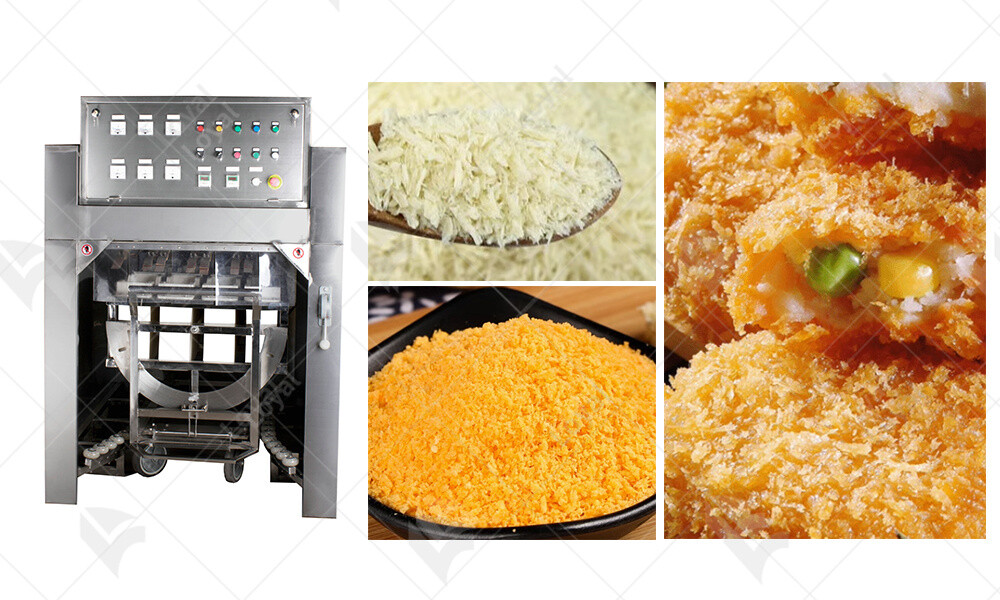
Maintenance and Troubleshooting for Panko Machines
Proper maintenance and timely troubleshooting are essential to keep your Japanese Panko Bread Crumb Machine running smoothly. Below is a detailed table outlining common maintenance tasks and troubleshooting tips:
|
Maintenance Task |
Frequency |
Description |
|
Cleaning |
Daily |
Clean all parts that come into contact with bread to prevent contamination and buildup. |
|
Lubrication |
Weekly |
Lubricate moving parts as specified in the manual to reduce wear and tear. |
|
Inspection of Belts and Blades |
Monthly |
Check belts and blades for signs of wear and replace if necessary to maintain efficiency. |
|
Electrical Component Check |
Quarterly |
Inspect all electrical components and connections for signs of damage or corrosion. |
|
Calibration |
Semi-Annually |
Recalibrate the machine to ensure consistency in crumb size and quality. |
|
Full System Overhaul |
Annually |
Perform a comprehensive inspection and service of the entire machine by a certified technician. |
|
Troubleshooting Issue |
Possible Cause |
Solution |
|
Machine Won't Start |
Power Supply |
Check the power source and ensure the machine is properly plugged in and switched on. |
|
Inconsistent Crumb Size |
Calibration |
Recalibrate the machine settings as per the manufacturer's instructions. |
|
Unusual Noises |
Mechanical Wear |
Inspect moving parts and lubricate or replace any worn components. |
|
Overheating |
Ventilation |
Ensure the machine is in a well-ventilated area and that air vents are not blocked. |
|
Electrical Malfunctions |
Wiring Issues |
Inspect all wiring and connections for damage and consult a professional if necessary. |
By adhering to these installation, setup, maintenance, and troubleshooting guidelines, you can maximize the efficiency and lifespan of your Japanese Panko Bread Crumb Machine. Proper care and regular inspections will ensure consistent production quality and minimize downtime.
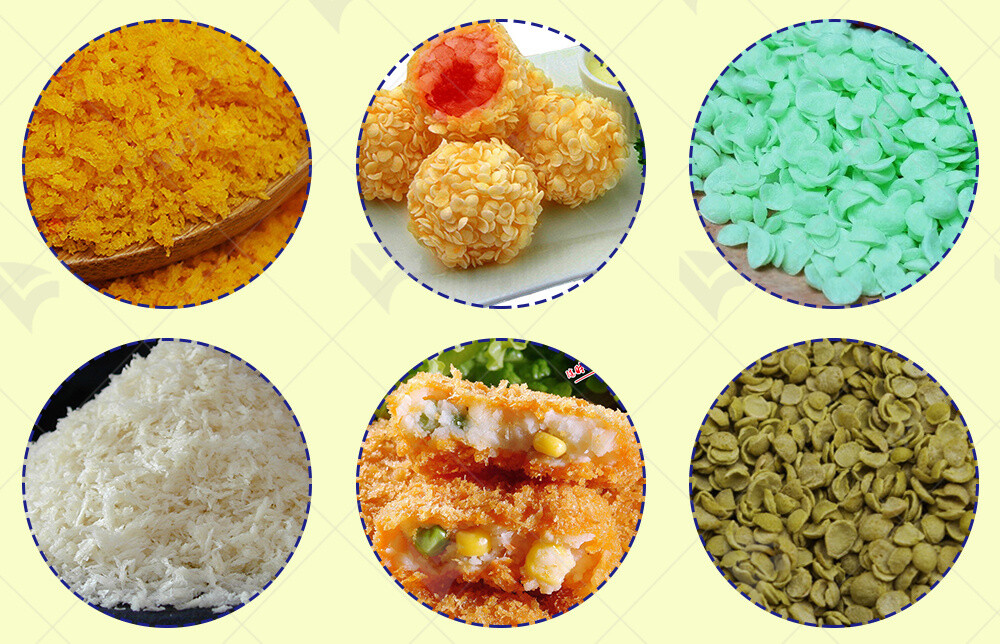
Innovations in Panko Bread Crumb Machinery
In the dynamic landscape of food processing machinery, innovations in Japanese Panko Bread Crumb Machines have been pivotal. Manufacturers are increasingly integrating advanced technologies to enhance efficiency and product quality. Modern machines now feature precision-controlled grinding mechanisms that ensure the consistency and texture of breadcrumbs meet exacting standards. This precision not only improves product uniformity but also minimizes waste, optimizing resource utilization in food production facilities.
Moreover, the integration of automated cleaning systems has revolutionized maintenance protocols. Japanese Panko Bread Crumb Machines equipped with self-cleaning mechanisms reduce downtime significantly, allowing for uninterrupted operation and greater productivity. These advancements underscore a shift towards sustainable practices in food processing, as they minimize water and energy consumption while maintaining hygienic standards compliant with global regulations.
The evolution of control interfaces also merits attention. Newer models are equipped with intuitive touchscreens that simplify operation and troubleshooting. This user-friendly approach not only streamlines training for machine operators but also enhances overall operational efficiency. Manufacturers are increasingly focusing on ergonomic design principles, ensuring that Japanese Panko Bread Crumb Machines are not only efficient but also easy to maintain and operate, thereby reducing operational costs over their lifecycle.

Case Studies of Successful Panko Machine Implementations
The successful implementation of Japanese Panko Bread Crumb Machines in various food processing facilities underscores their transformative impact. One notable case study involves a medium-scale bakery that upgraded its traditional breadcrumb production line to a modern Japanese Panko Bread Crumb Machine. By adopting this advanced equipment, the bakery achieved a remarkable increase in production capacity, meeting rising market demands without compromising product quality.
In another instance, a large-scale food manufacturing plant integrated multiple Japanese Panko Bread Crumb Machines into its production line. This strategic investment not only boosted throughput but also enhanced product consistency across batches. By automating the breadcrumb-making process, the plant minimized human error, thereby improving overall product quality assurance measures. This implementation serves as a benchmark for efficiency in large-scale food production environments.
Furthermore, a catering service provider capitalized on the versatility of Japanese Panko Bread Crumb Machines to diversify its product offerings. By customizing breadcrumb textures and flavors, the provider catered to a broader range of culinary preferences, thereby expanding its market reach. This adaptive approach not only satisfied existing clientele but also attracted new customers seeking unique breadcrumb variations for their dishes.
Each of these case studies exemplifies how Japanese Panko Bread Crumb Machines have redefined operational capabilities in food processing. By leveraging technological advancements, these machines empower food manufacturers to achieve higher efficiency, consistency, and product innovation, thus setting new benchmarks in the industry.

Future Trends in Panko Bread Crumb Machine Technology
In 2024, the landscape of food processing machinery, especially in the realm of Panko bread crumb makers, is poised for significant advancements. Innovations in Japanese Panko Bread Crumb Machines are set to revolutionize industrial food production. These machines, equipped with state-of-the-art technology, streamline the process of producing high-quality Panko bread crumbs, meeting the increasing demand for efficiency and consistency in the food industry.
Advancements in automation and precision engineering are at the forefront of future trends. Japanese Panko Bread Crumb Machines are integrating advanced sensors and AI-driven systems to optimize the production process. This ensures that each batch of Panko bread crumbs meets stringent quality standards, from texture to flavor.
Furthermore, sustainability is becoming a key focus in machine design. Modern Japanese Panko Bread Crumb Machines are designed to minimize waste and energy consumption while maximizing output. Manufacturers are increasingly adopting eco-friendly materials and energy-efficient practices, aligning with global initiatives for sustainable development.
The future also holds promise for enhanced connectivity and data analytics in Japanese Panko Bread Crumb Machines. Internet of Things (IoT) technology allows for real-time monitoring and remote control, enabling proactive maintenance and reducing downtime. This connectivity facilitates predictive analytics, optimizing production schedules and resource allocation.
In conclusion, the evolution of Japanese Panko Bread Crumb Machines in 2024 is marked by technological innovation, sustainability, and enhanced connectivity. These advancements not only elevate the efficiency and quality of Panko bread crumb production but also pave the way for a more sustainable and interconnected future in industrial food machinery.
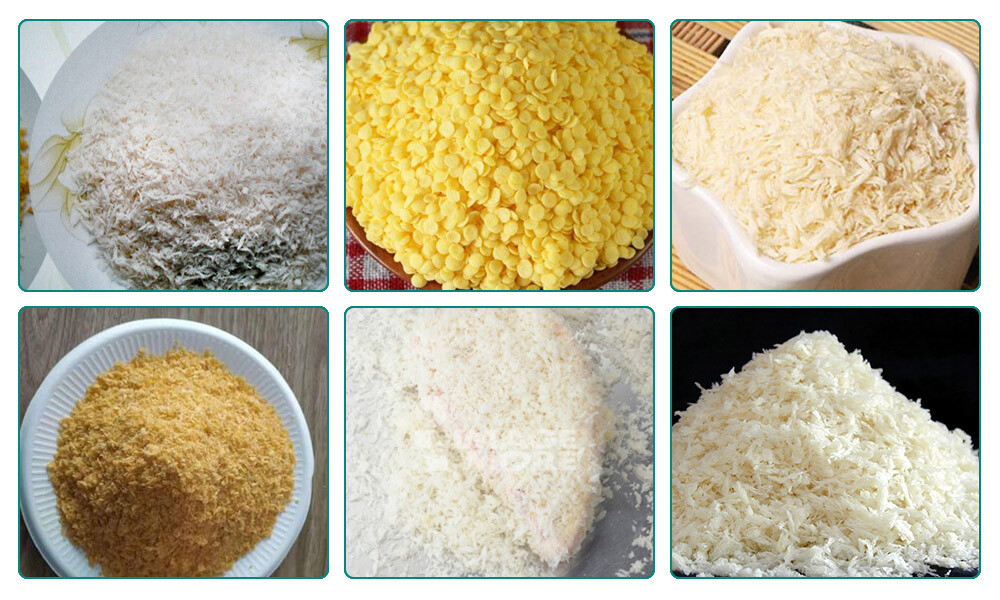
Reference
1.Baker Perkins - bakerperkins.com
2.GEA Group - gea.com
3.Heat and Control - heatandcontrol.com
4.Hosokawa Micron - hosokawamicron.com
5.Fritsch Group - fritsch-group.com
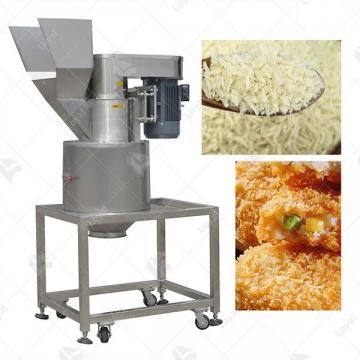 Japanese panko bread crumbs making machine
Japanese panko bread crumbs making machine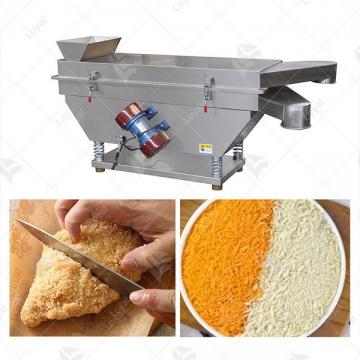 Japanese Bread Crumbs Processing Line
Japanese Bread Crumbs Processing Line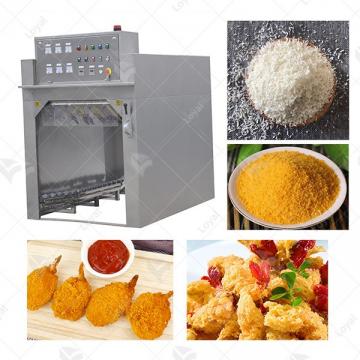 Commercial Japanese Panko Bread Crumb Grinder Machine
Commercial Japanese Panko Bread Crumb Grinder Machine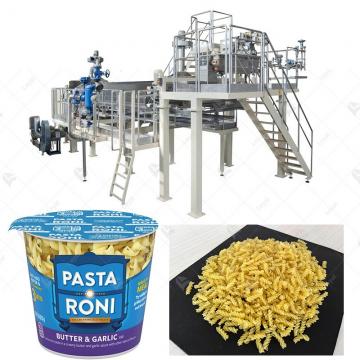 Instant Pasta Production Line
Instant Pasta Production Line